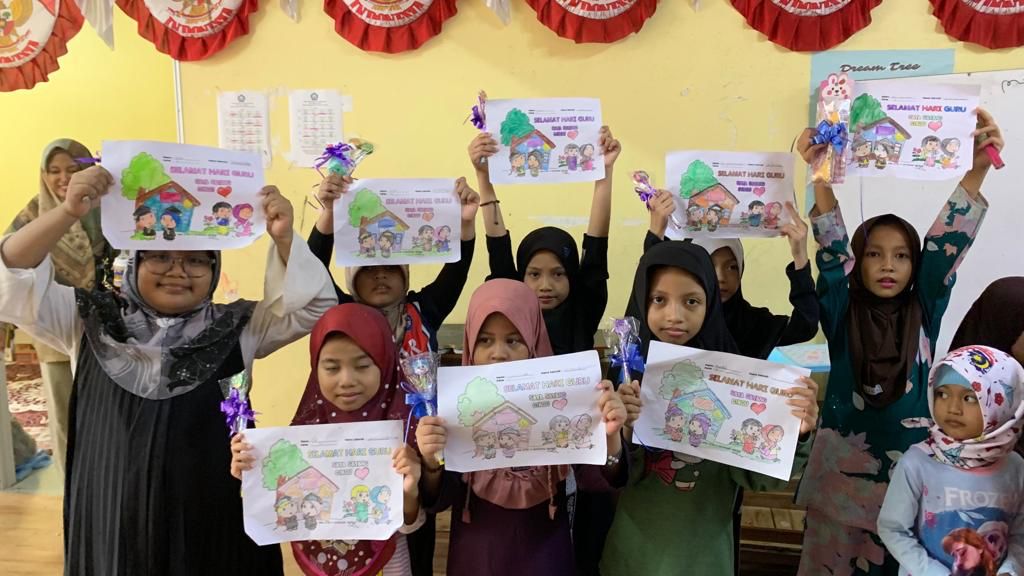 |
| The result of coloring activity for illegal Indonesian children in Malaysia (Photo: Special). |
As an educated people, we should encourage ourselves to be helpful to others. It was experienced by five students of the Faculty of Teacher Training and Education, University of Muhammadiyah Malang (FKIP UMM). With the spirit of teaching and striving to educate the nation's children, they contributed to teaching children through the Real Work Course program of Muhammadiyah Universities (MU) international partnership in Malaysia this November-January.
During the process, they help to teach children who have been unable to return to Indonesia due to administrative issues. It cannot be separated from the problem of residency permits and other permit processes. Furthermore, these Indonesian citizens must live a difficult life due to their low economic status. Salwa Salsabila Naqqiyah Rafie, one of the team members, said that in these various limitations, her team made attempts to improve literacy and education in marginalized children for one to two months.
Read more: UMM Lecturer's Tips on Financial Management for Young Couples
"Although they are considered illegal under the law, we think they deserve access to a proper education through the learning centre," said Sabil.
Due to their lack of legal status, the children could not attend school like the others. They are not allowed to enrol in elementary school for unclear identity reasons. This program is an alternative that the children can learn, even though it is not a formal school. "During our lessons, we were quite sad because some teenagers couldn't even read. It is also our encouragement to contribute and help them," she said.
They conduct several programs during their classes. Starting from introducing Indonesian culture through games and folk songs, the Wednesday Literacy program, and English vocabulary. However, considering that the children in the learning centre are not able to learn independently, the activities emphasized the habit of reading and writing as the basis of literacy, which is very important. Sabil and his team wrapped up the event with a lively art performance. This art performance also illustrates the diversity of Indonesian culture that they love and always miss.
"We intentionally arranged the art performance for the children and their parents to release their longing for their beloved country, Indonesia. Especially with the difficult conditions for them to be able to return to Indonesia again," she ended. (rin/wil)